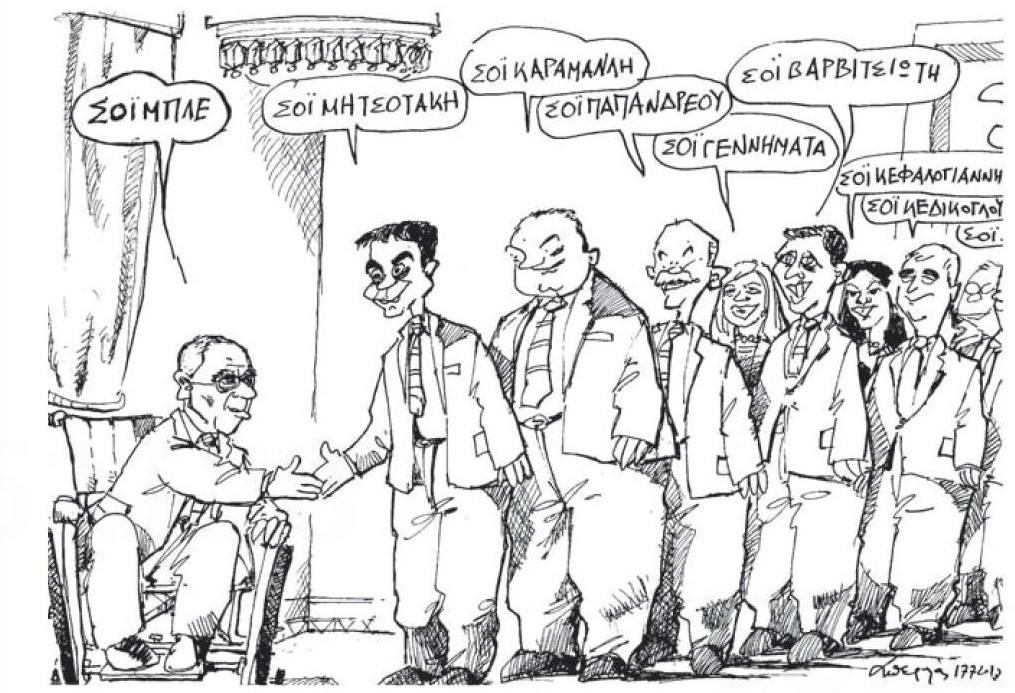By Evi Tsakali,
Greek politics, as it seems, is incorrigibly dynastic. Since the end of the military junta, the leadership of our country has been passed around by a handful of political families. Greece is probably the only European country that counts — through the course of its modern history — three cases of Prime Ministers of three generations, father-son-grandson (Zaimis, Rallis, and Papandreou), not to mention the even more numerous cases of two generations (father and son). Some tend to compare our dynasties to the Kennedys in the United States, but that is rather too flattering…
“The staying power of the political dynasties is, of course, related to the outmoded organization and structure of Greek political parties” states Aristeides Chatzis, law Professor at the University of Athens; “They are still oligarchic, traditional, non-democratic, and exclusive”. The persistence of the nepotism phenomenon in Greek politics is perhaps explained, by the better access of politicians’ children to “proper” channels, better-targeted education, and a distorted idea of tradition or legacy. Despite the fact that especially the first two factors can be easily and logically deducted and — most importantly — can be of universal application, how come phenomena of nepotism in politics are very rare in robust Western democracies like France or Germany? The answer can be found in the very heart of Greek society after the Metapolitefsi (the transition from the military junta to our current democratic regime).

In a rotten society, where citizens feel insecure and are hesitant to trust the institutions or believe in the existence and the force of the Rule of law, they opt for the politician’s protection, manifesting insecurity which the latter gladly purchases; and that, like a legacy, is transferred to their children, even if they eventually find themselves at a (slightly or not so slightly) different place in the political spectrum. The Greeks love to hate and hate to love the nepo babies in their domestic political arena; it is — in the end — our comfort zone. Ironically enough, though, we tend to blame the dominant political families for a legacy of patronage as well as for the financial crisis that has had our country bleeding for over a decade now. The main beneficiary of a rather sly manifestation of this discontent was probably Syriza in 2015; and even they — albeit basing their communication game on promising a new, hopeful era — had their brush with nepotism, recycling to a certain extent the already existent political elite.
According to research conducted in 27 countries by the Pew Research Center in 2018, Greeks are not only the most likely to describe their politicians as corrupt but are also the most pessimistic that nothing will ever change regardless of any election’s outcome. Nevertheless, for a people so pessimistic, we forgive and forget easily (in every step of the way). Repeating the mantra “this is Greece” is only an excuse for our inertia, and a sugarcoat to the more truthful one “this is us”. Therefore, for the upcoming parliamentary elections, may the common message be the urgent need for a modernization of our political moral code…
P.S.: Dedicated to the Slovak guy reading this, you are not the only ones…
References
- Οι αιτίες του νεποτισμού μας. kathimerini.gr. Available here
-
In Greece, politics is a family affair. politico.eu. Available here




